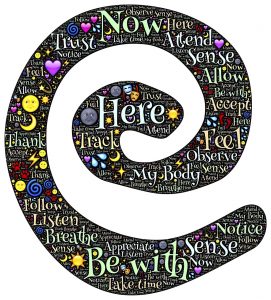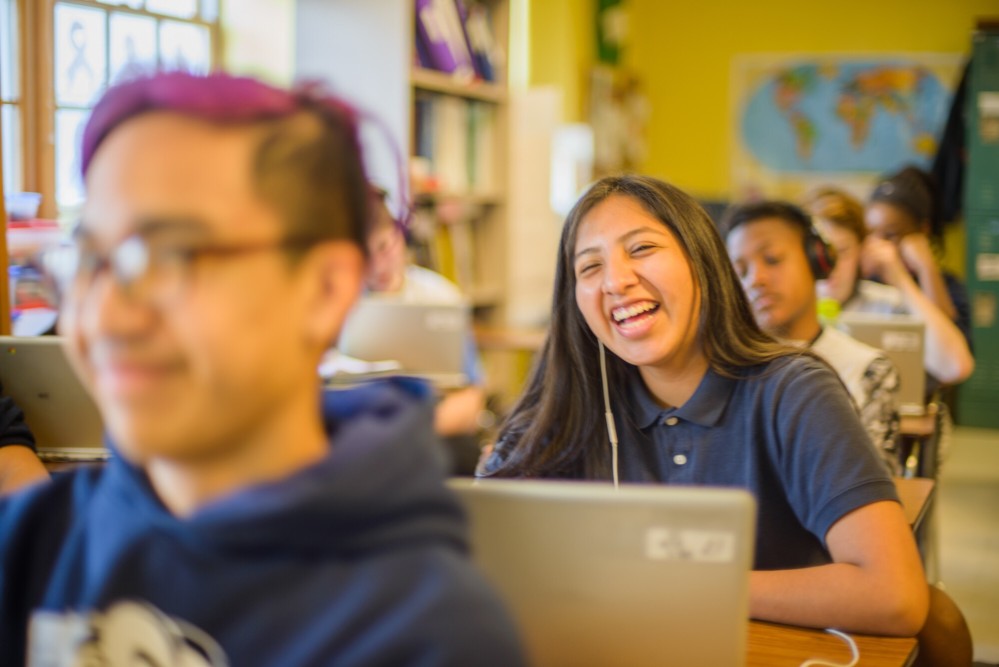Teachers Use Meditation to Inspire and Calm
 Over the past five years, “mindfulness” programs have exploded in popularity. In Grand Blanc, Mich., first-graders are breathing to the sound of Tibetan music before class. In Albuquerque, second-graders sniff and speak about raisins before eating them. In Yellow Springs, Ohio, students can choose yoga as an alternative to detention.
Over the past five years, “mindfulness” programs have exploded in popularity. In Grand Blanc, Mich., first-graders are breathing to the sound of Tibetan music before class. In Albuquerque, second-graders sniff and speak about raisins before eating them. In Yellow Springs, Ohio, students can choose yoga as an alternative to detention.
Educators hope that leading students in self-reflective exercises such as meditation will give them tools to handle stressful situations, said Amanda Moreno, an associate professor at Erikson Institute, a graduate school that trains professionals in child development. If children can expend less energy to stay calm, the theory holds, they’ll have more gusto for learning.
Promising Research Results
Early research is promising. Last year, Harvard education professor Martin West conducted a study of Boston sixth-graders, asking 50 to sit for a 45-minute mindfulness session — which included meditation and other “relaxation exercises,” he said — at the end of the school day four times a week. He asked another group of 50 children to spend that time studying computer coding.
After eight weeks, West found that students who underwent the mindfulness training reported “a substantial reduction in perceived stress” as compared with the students immersed in their computers. West said the result was supported by brain scans: Children in the mindfulness group also showed “reduced activation” in the portion of the brain associated with stress response.
“The next step is seeing whether this translates into meaningful academic gains for students,” West said.
Does meditation in class violate the separation of church and state?
Over the past five years or so, Candy Gunther Brown, a professor of religious studies at Indiana University at Bloomington said, some Christian, conservative groups have begun speaking out against practices such as meditation in schools. These activists argue mindfulness programs violate the constitutionally mandated separation of church and state, Brown said, because they expose students to Buddhist or Hindu ideologies.
Legally, the question is unresolved.
“The Supreme Court has just about exclusively dealt with Christian practices like prayer and Bible reading in schools,” Brown said. “There’s not been any cases on a practice like yoga.”
The American Center for Law and Justice, a Christian advocacy group, is keeping a close eye on mindfulness initiatives in schools, said senior litigation counsel Abigail Southerland. The center became aware of the issue after parents throughout the country contacted the group with concerns, she said.
“There’s a difference between teaching a student about various religions and leading them in religious practices,” Southerland said. “Here, you have a captive audience.”
Impact on students at George Washington Middle School
At George Washington Middle School in Alexandria — which enrolls roughly 1,400 students — meditation sessions were introduced at the start of this school year by Desiree McNutt and Elkin Rodriguez, two educators who teach sixth-grade science to roughly 175 children in total. They said results were swift.
George Washington’s principal, Jesse Mazur, said he will assess at the end of the school year whether sixth-graders taught by McNutt and Rodriguez have made unusually strong academic progress compared with their classmates.
Even if they haven’t, Mazur said, he believes meditation is worthwhile. He is encouraging more teachers at the middle school to follow McNutt and Rodriguez’s example.
Excerpted from “Teachers use meditation to inspire and calm: ‘Imagine a voice coming from your heart’” in The Washington Post. Read the full article.
Source: The Washington Post | Teachers use meditation to inspire and calm: ‘Imagine a voice coming from your heart, https://www.washingtonpost.com/local/education/imagine-a-voice-coming-from-your-heart-teachers-use-meditation-to-inspire-and-calm/2020/02/22/e08d5c8e-4dbd-11ea-9b5c-eac5b16dafaa_story.html | © 2020 The Washington Post
CHC offers free community education sessions for educators. Join us to learn practical teaching strategies you can use in your classroom to help more kids reach their promise and potential. Educator sessions are led by experienced educator/clinician teams from Sand Hill School and CHC.





